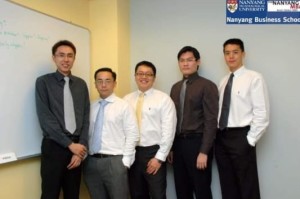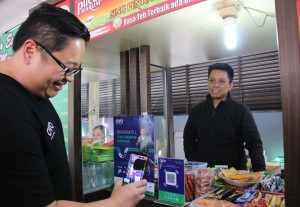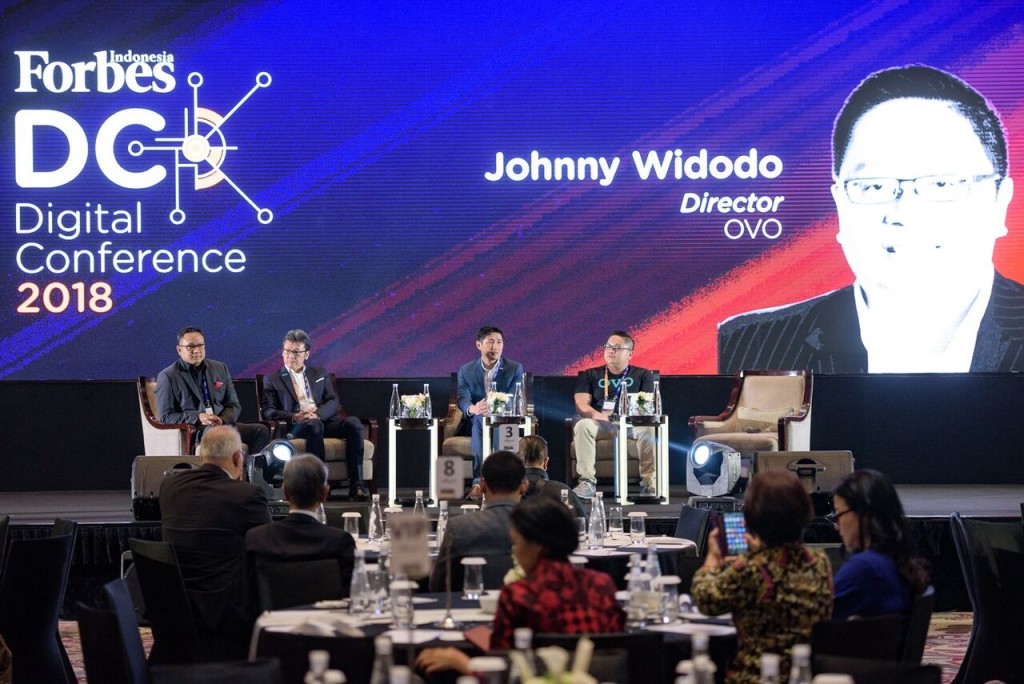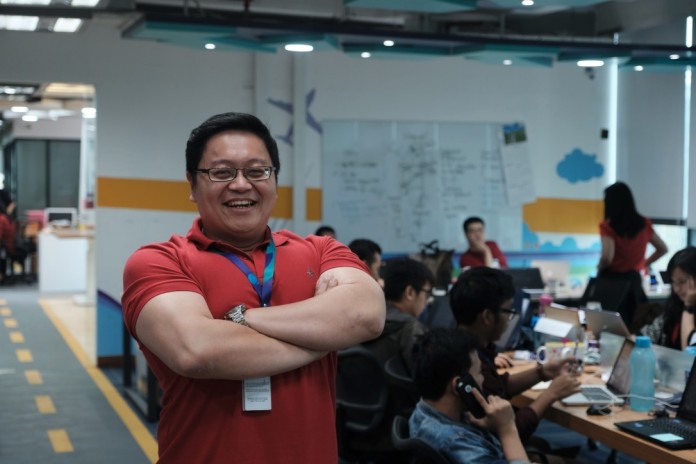Johnny Widodo, an alumna of Nanyang Technological University, had a promising career in Singapore – he too had plans to settle down in Singapore. However, as he realized that there is a plethora of opportunities that Indonesia can offer, Johnny decided to break out his comfort zone and joined OVO to develop its digital payment, even though he did not know any financial terms at that point of time. With a strong interest, keen mind for learning, and never-give-up mentality, he strides through the odds and gives it all to build OVO. Now, let’s take a deep dive into his story, and how he transitioned to the fintech space, to learn the lessons that he has accumulated thus far, and to see how Indonesia matters from his perspective.
***
You have such a promising career in Singapore, why did you transition into each point in your life and what was your defining moment?
“Going back to Indonesia was unthinkable when I was young”, that’s what Johnny Widodo, the Director of OVO said when Indonesia Mengglobal team interviewed him. Johnny was a former engineer and management consultant, and he was part of the shrimp business with CPP, largest aquaculture producer with consumer brand: Fiesta seafood before he decided to join one of the largest fintech companies in Indonesia, OVO.

“If you asked me whether I wanted to go back to Indonesia, back then my answer would be a straight no. When I was with an engineering company, I knew that I wanted to transition from a technical role to a more managerial one. Hence, I took the MBA from NTU, completed the program, and I wanted to go back to Indonesia for a while to sharpen my analytical and problem-solving skills through consulting and settle in Singapore with my then Singaporean girlfriend”, said Johnny, who graduated from Nanyang Technological University with his Bachelors and Masters in Material Engineering, as well as an MBA degree from Nanyang Business School.

Johnny, who started his career in the semiconductor industry and transitioned to Management Consulting with A.T. Kearney, saw the opportunity in Indonesia where he, as one of the rare gems of Indonesia at that time, could develop one of the fastest growing industries that could highly impact 265 millions of Indonesians across the archipelago. With his dedication and strong-willed team, Johnny along with other founders build OVO to be available in 115 million devices with access to payments, transfers, cash-in/out, rewards, asset management, and investments. OVO is accepted in more than 300 cities across the Indonesian archipelago and it is now committed to building Indonesia’s largest payments and financial technology company.
“I was once narrow-minded and had plenty of now-debunked assumptions of Indonesia”, said Johnny. He once thought Indonesia as a place where people were very complacent to change, resistant to adopt new technologies and very adamant to grow hand-in-hand with Indonesian Diaspora talents. “But once I got home, I realized that there are so many opportunities in Indonesia, so enormous that it made me aware that, actually, someone with an international training and top-notch analytical skills, became a rare gem of Indonesia.” Johnny saw the opportunity 8 years ago when there were not many Indonesian Diasporas who really had skills developed through a higher degree training and fast-paced careers such as consulting.
He also realized that as an Indonesian, he has the competitive advantage that no other bright-minded person has at that time – that is to connect with, speak for, and understand the culture of Indonesia, the largest market in Southeast Asia. “Once in Indonesia, all the (foreign) people out there, basically the Orang Bule, are nothing but a dead lice when faced with the locals in Indonesia because they do not understand the culture as well as the language, and whether you like it or not Indonesia has been growing so fast and it would become one of the biggest economies in the next 5-10 years. They have to come here. I see the potential in the nation, I felt that the work in Indonesia brings enormous opportunity and I see that I can contribute back to the nation with the skill sets that I have.”

Johnny decided back then to believe in fintech because he saw that it can potentially transform the way people live in Indonesia. “For me, I hate going to the supermarket, especially at weekends, because the line is always so long. Imagine that you are only buying fewer than 10 items and you have to queue for more than 30 minutes—for me, I just want to pick it up, walk out, and be done with my shopping as fast as I can”. Johnny aspires to build OVO to become the Alipay of Indonesia, by helping Indonesians to realize how helpful is this system in getting them from point A to point B faster. “Slowly, OVO or fintech, in general, will become a part of Indonesian life” as Johnny put it.
Why did you decide to go back to Indonesia? What do aspiring Indonesian Diaspora willing to contribute to Indonesia should we know about/be aware of?
“To be very frank with you, it was somewhat a happy coincidence”, said Johnny. By the time Johnny transitioned from consulting, he moved to Industry and worked for leading aquaculture company in Indonesia who produces end-to-end from feed and seafood products. “It was an interesting job, but it was not fulfilling enough and I knew that I could have done more.”

“The time was 2014 and e-commerce are budding across Indonesia. From Gojek to Tokopedia, these firms had just begun their journey in building Indonesia through the technology boom and I want to be part of it.” Nobody knew what e-commerce was back in the day and neither did Johnny. “Opportunity came at OVO, and I was asked to spearhead some of the strategic initiatives that the firms have – from Big Data Analytics, all the way to Marketing and Operations”, said Johnny, and the big twist was that he didn’t know anything that is substantive enough about the technology Industry. “I understand the idea at a very high level, but I have no idea how to execute it in one level below”, he added, “and what my response was during my interview at the time was mostly, ‘Oh that’s great…’, or .. ‘Sounds very interesting, sounds very cool huh…’ because at that time I didn’t have any digital experience”.

But there is one thing that sets Johnny apart despite the odds against the new attempt that he was about to embark. “I told the interviewer”, said Johnny, “that though I may not have the specific skills, I have skills that most of the people don’t have: hard work and determination. When I have committed myself to do something, I will never go back. I double down 200% -300% no questions asked.” Another thing that Indonesian diaspora must also realize is that it must be understood that if experienced Indonesian wants to contribute back to an Indonesian firm, a pay cut is inevitable despite the seniority. After all, transitioning to a new industry means that a learning curve is expected, and companies expect you to take a pay cut since some candidates might not have direct experience. But above all, Johnny attributed his achievements to both his willingness to learn and the ability to prove himself and getting things done. Both of them were essential.
If you could do it all over again, would you choose the same path for yourself? If not, what would you change? What would your other 3 principles be in line with your current endeavour
Firstly, Johnny thinks that the mentality to learn is really important. Pushing and developing people to the best of his/her ability and the willingness to learn is one trait that Johnny thinks that imperative… Another thing is to stand up for your mistakes—don’t try to cover them up. “When you make mistakes, you have to find out the root cause, so that you don’t make the same mistake again”, said Johnny. The simplest way to say it is when you fall down, make sure you understand why you fell down and make sure you don’t repeat it.

Secondly, in hindsight, he would not change what course he went to – he would still go to engineering school because it gave him a different perspective and a different way of thinking that non-engineers do not have. “But once I work, I would probably not go into engineering fields. I won’t be a salesman either, but I would definitely join an organization that would give me a holistic exposure. Private Equity Firms, Startups, Consulting, and Banking are some of the few but not the only way for young people to get a lot of exposure to see different things. Once you have the exposure and experience, make a firm decision and continue whatever you want to do.”

Lastly, Johnny thinks that Indonesian Diasporas must understand that Indonesia’s path to growth is still at its dawn and there are so many opportunities available to work and contribute back to the nation. “You need to debunk several myths that you have about Indonesia”, said Johnny. “People say that most professionals think that in Indonesia, salaries are lower than overseas, but in my opinion, it’s a ‘myth’, and I am the living proof of that”. Johnny also remarked on how the social and technological landscape in Indonesian has changed throughout the years. “You must let go of your old view that Indonesia is falling behind in technology, even a farmer in one of the conglomerates in Indonesia today now have the technology to precisely measure the growth and provide the exact watering angle for palm trees. Yes, you might still be facing traffic, pollution, and whatnot, but after a long time, you will also learn how to accept that fact.”
As a closing remark, Johnny reminded that though building Indonesia is a challenging journey, it is a fruitful and rewarding one. “Creating an impact and moving things in Indonesia is not an easy endeavour. Rather than seeing it as a disadvantage, learn to adapt and seek opportunities from the situation and soon you will move Indonesia with the work that you do.”
***
This article was written by Aditya Hendrayana and edited by Siti Octrina Malikah. Featured in this article is Johnny Widodo. In his own words:
Johnny Widodo is the Director of OVO, one of the fastest-growing fintech company in Indonesia. He received his Bachelors and Masters in Material Sciences and Engineering, as well as an MBA degree from Nanyang Technological University, Singapore. Johnny, who started his career in the semiconductor industry and transitioned to Management Consulting with A.T. Kearney, decided to return back to Indonesia and help builds OVO to be available in 115 million devices with access to payments, transfers, cash-
in/out, rewards, asset management, as well as investments, and it is now committed to building Indonesia’s largest payments and financial technology company. Johnny is also a coach and a public speaker across national seminars, universities, and media on Fintech and leadership. He loves weightlifting and being involved in communities in his spare time.
***
Photos are provided by Johnny Widodo









